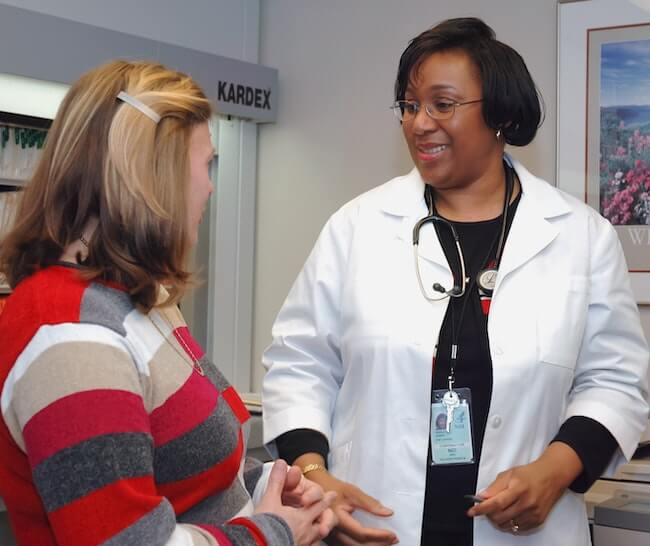The next time you’re having a bad day, consider this: Your brain is the most complex object in the universe known to science<sup>1</sup>. The most powerful supercomputer cannot match many of the daily tasks you take care of without a hitch.
Throughout our life spans, our brains face varying challenges. In childhood and adolescence, the brain undergoes rapid development. We’re faced with the daunting tasks of learning language, motor skills such as tying shoelaces, social skills, and the massive amounts of information presented to us as part of our formal education. Learning continues in adulthood as competence, performance, relationship building, and emotional well-being become central to our self-concept. Advanced age presents particular challenges: sadly, one in seven Americans 71 and older exhibit a deterioration of brain function in the form of dementia<sup>2</sup>.
The good news is that there are scientifically proven steps you can take to optimize your learning, boost memory, and improve brain health. Some of these easy interventions may surprise you. Let’s take a closer look.
Get a Good Night’s Sleep Every Night
Pulling an all-nighter to “cram” for a test or finish that work project is a horrible idea. You need rest to help you concentrate for the next day, and sleep is essential for remembering what you studied the day before.
A century ago, the prevailing belief was that our brains essentially shut down during sleep. In 1924, electroencephalographs (EEG) were performed on sleeping subjects for the first time. In the 1950s, rapid-eye-movement sleep (REM sleep) was first described. The concept of sleep was turned upside on its head. It turned out that human brains show a remarkable degree of activity during sleep. But what was the purpose of all this action?
Multiple studies have shown that the firing of brain cells in the cerebral cortex and in an area called the hippocampus helps consolidate memories<sup>3</sup>. Newly learned information is retrieved, organized, and integrated with previously acquired knowledge. All while you’re asleep!
On the other hand, sleep deprivation was associated with the formation of false memories in one study<sup>4</sup>. Young, healthy subjects were more likely to recall misinformation introduced by the experimenters as factual when tested after being denied adequate sleep.
How to Get Better Sleep
To get a good night’s sleep, make sure your bedroom is not too cluttered. It should be dark, quiet, somewhat cool, and a comfortable mattress surely helps. Avoid nicotine, caffeine, excess alcohol, and heavy meals close to your bedtime hour. Exposure to artificial light, including computer screens and smartphones, can affect the release of melatonin and impact your sleep-wake cycle<sup>5</sup>.
Loud snoring and nighttime breathing difficulties may indicate obstructive sleep apnea and should be evaluated by a sleep medicine professional<sup>6</sup>. It is a serious condition that can be highly detrimental to many health issues besides brain performance.
Most adults need at least seven hours of sleep a night. If possible, go to bed early enough that you don’t need an alarm clock to wake you the following day.
Read more about sleep:
Healthy Body, Healthy Brain Cells
The late co-founder of Apple Computers, Steve Jobs, was a strong proponent of walking meetings: moving conferences held with his staff outdoors. He may have been borrowing a page from the ancient Romans who understood the benefits of this practice and had a saying: “solvitur ambulando”—it is solved by walking. A team of psychologists at Stanford University, some 12 miles from Apple headquarters, conducted experiments that justified the practice. Their results showed that walking meetings, especially those held outdoors, increase the flow of ideas and improve creativity<sup>7</sup>.
Many studies suggest that walking, as a form of exercise, is one of the best ways to keep your brain young. One study randomized healthy young adults into four groups with varying amounts of physical activity: no exercise, light intensity, moderate intensity, and vigorous intensity<sup>8</sup>. The investigators used a battery of tools to test the participants’ cognitive performance immediately following the activity level they were assigned to for several weeks. The subjects in the sedentary group performed the worst; those in the moderate activity level (equivalent to a brisk walk), the best.
Read more: You can lose weight without exercise, but should you?
Brain Benefits of Exercise
The benefit of exercise on brain function expands beyond healthy young adults. Memory tends to deteriorate with age partly because there is a gradual shrinkage of the hippocampus. But a randomized controlled study among elderly individuals showed that moderate-intensity aerobic exercise, three days a week, produced a 2% growth of the hippocampus over a one to two-year period<sup>9</sup>. The result was a measurable improvement in memory.
Some activities proven to improve mental dexterity don’t even require sneakers. Daily solving of crossword and number puzzles, taking up new hobbies that require focus, and learning new subjects (such as a new language) can help sharpen mental function<sup>10</sup>.
Eating Right for Your Brain
Your brain is greedy. Though it weighs a measly three pounds, only about 2% of your total body weight, it accounts for some 20% of total daily energy expenditures.
It should be no surprise that a well-functioning brain requires a well-balanced diet. Certain nutrient deficiencies can have devastating consequences. The most commonly seen in the United States is thiamine deficiency, usually associated with excessive alcohol intake, which leads to a condition known as Wernicke encephalopathy<sup>11</sup>.
With all the diets out there, are there any that stand out when it comes to brain health? The Mediterranean diet, a diet rich in fruits, vegetables, legumes, whole grains, and olive oil, with low to moderate amounts of animal protein and little to no processed food, has been shown to improve brain health. It may even help stave off Alzheimer’s disease<sup>12</sup>. The more compliant one is with the diet, the larger the benefit.
<p class="pro-tip">Read more about the benefits of a balanced diet.</p>
Brain Benefits of Low Fat and Mediterranean Diets
More than 300 participants were fed one of three diets and followed for an average of four years<sup>13</sup>. The three diets were a Mediterranean diet supplemented with olive oil, a Mediterranean diet supplemented with nuts, or a low-fat diet. The individuals in both versions of the Mediterranean diet showed better performance on standardized brain performance tests throughout the study period.
The reason may be that diets like the Mediterranean diet and Dietary Approaches to Stop Hypertension (aka, DASH, a diet that incorporates foods rich in polyphenols, antioxidants, and omega-3 containing fish oils) protect the brain by reducing inflammation.
In one study, the Mediterranean diet did not reduce the risk of Alzheimer’s in those subjects with specific changes in a gene called ApoE. These individuals have a higher risk for Alzheimer’s than the general population. But even in this population with a higher genetic risk of dementia, dietary patterns had a startling effect on outcomes. Participants who ate cold-water fish rich in omega-3 oils twice-weekly (salmon, tuna, and sardines, for example) had a 28% lower risk of dementia and a 41% lower risk of Alzheimer’s disease than those who consumed these foods less than once a month<sup>14</sup>.
In summary, the Mediterranean diet and fish rich in omega-3 oils are indeed food for thought.
<p class="pro-tip">Learn more about the Mediterranean diet and blood sugar</p>
Make Time for Family and Friends
Humans are profoundly social creatures. Sadly, many adults find it difficult to engage socially in the bustle of life, and some feel isolated. A recent survey conducted by AARP found that one in five adults over the age of 40 are socially disconnected<sup>15</sup>. A growing body of research shows that large social networks and high engagement in social activities are associated with better brain health later in life<sup>16</sup>.
It may seem challenging to forge new friendships, but many opportunities require little effort. Join a group for a pursuit you might find interesting: digital photography, birdwatching, mushroom hunting, creative writing, community gardening, painting—the possibilities are endless. And don’t worry about your level of expertise. Beginners are almost always welcomed and cherished. Listings of hobby groups can be found at your public library, church, and online.
The internet helps us reconnect with old friends and find long-lost relatives. If you’re feeling lonely, it may be time to reach out.
{{mid-cta}}
Stress Management
We all experience some level of stress from time to time and chalk it up as part of life. Sustained stress, however, can lead to a condition psychologists refer to as cognitive interference—unwanted and disturbing thoughts that intrude on one’s life—which hampers learning and performance.
A study of over 100 older adults, grouped according to self-reported stress levels, demonstrated that stress-related cognitive interference can negatively affect memory and brain processing speed. Most worrisome, the effects can be long-lasting<sup>17</sup>.
There are many strategies for stress reduction: yoga, exercise, meditation, breathing exercises, mindfulness, and even a peaceful nature walk. Soothing music and cuddling with a pet can be comforting. When possible, spending time with understanding friends and loved ones can bring great relief.
In some instances, stress can be overwhelming. These circumstances may require a major life change, such as a changing career or breaking up with a partner. If your stress level seems more than you can handle alone, consider discussing the issue with your primary care doctor or a licensed professional therapist.
Read more: Can stress cause high blood sugar?
Substances to Avoid
One glass of wine a day, taken with a meal, may produce some beneficial health effects. Intoxication, on the other hand, is never a healthy option. Any substance that significantly alters your state of consciousness, legal or illicit, should generally be avoided.
Read more about the relationship between alcohol and your blood sugar.
Caffeine-containing drinks consumed in moderation (less than 400 grams per day) can lead to short-term feelings of well-being, increased alertness, and concentration. Higher amounts, particularly in sensitive individuals, can heighten anxiety and lead to disordered sleep<sup>18</sup>. Nicotine can also provide mild transient benefits, such as improvements in short-term memory. Unfortunately, cigarette smoke contains thousands of chemicals, many of which are toxic, particularly to the developing brains of young people. Due to its many ill effects, smoking should be avoided at all costs.
“E-A-R-S” to Improve and Maintain Brain Health
In summary, the most direct way to better brain health is to improve your overall health. A useful acronym to help you stay on track—just remember to take care of what’s between your EARS:
- E – EAT: EAT a brain-healthy diet.
- A – ACTIVITY: Physical and mental ACTIVITY help keep your brain fit.
- R – RELATIONSHIPS: Spend time with friends and loved ones.
- S – SLEEP, STRESS, SUBSTANCES: SLEEP well, manage STRESS, and avoid SUBSTANCES.
Take the first steps in adopting healthy brain habits and your overall health is bound to improve.
Read more tips on starting to live a healthier lifestyle.
References
- https://www.ncbi.nlm.nih.gov/books/NBK234155/#:~:text=The%2520brain%2520is%2520the%2520last,interlinked%2520through%2520trillions%2520of%2520connections.
- https://www.nih.gov/news-events/news-releases/one-seven-americans-age-71-older-has-some-type-dementia-nih-funded-study-estimates
- https://pubmed.ncbi.nlm.nih.gov/28044430/
- https://www.ncbi.nlm.nih.gov/pmc/articles/PMC5324644/
- https://www.ncbi.nlm.nih.gov/pmc/articles/PMC4284776/
- https://www.ncbi.nlm.nih.gov/pmc/articles/PMC5281652/
- https://www.semanticscholar.org/paper/Give-your-ideas-some-legs:-the-positive-effect-of-Oppezzo-Schwartz/3f25022ba2c846fbf13591ca7e1b619323405a3c
- https://www.sciencedirect.com/science/article/abs/pii/S002561961500052X
- https://www.pnas.org/content/108/7/3017?version=meter%2520at%2520null&module=meter-Links&pgtype=Blogs&contentId=&mediaId=%2525%2525ADID%2525%2525&referrer=&priority=true&action=click&contentCollection=meter-links-click
- https://onlinelibrary.wiley.com/doi/abs/10.1002/gps.5033
- https://pubmed.ncbi.nlm.nih.gov/30281514/
- https://ebm.bmj.com/content/20/6/202.long
- https://jamanetwork.com/journals/jamainternalmedicine/fullarticle/2293082
- https://n.neurology.org/content/65/9/1409.short
- https://www.aarp.org/home-family/friends-family/info-2017/loving-relationships-and-brain-health.html
- https://www.ncbi.nlm.nih.gov/pmc/articles/PMC6700717/
- https://psycnet.apa.org/record/2006-11398-008
- https://pubmed.ncbi.nlm.nih.gov/26677204/
- Item 1
- Item 2
- item 3
































